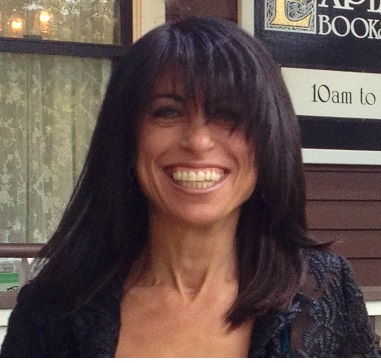Financial Empowerment in Practice: Q&A with Dr. Barbara Freeman

Dr. Barbara Freeman is the founder and team leader of LaMedichi Savings Clubs. Barbara is an international educator and social entrepreneur. She works in the Roaring Fork Valley and has created several educational and socioeconomic interventions for people living in disadvantaged and difficult circumstances. She has raised more than $20 million for her programs.
In this Q&A, she shares with us what she has learned about financial empowerment by speaking to community members in the Roaring Fork Valley.
The work you’re doing is very community-driven. Can you tell us why you decided to structure your financial empowerment work that way and what it looks like in your community?
We felt it was important to listen to people share their stories about how they deal with money, what works for them, what does not work, and workarounds they use. We wanted to include people who have a lived experience of problems with the money system. We, therefore, recruited caseworkers and residents from different walks of life to join the project team to lead the project — undocumented people, single moms, people who have been in jail, people experiencing homelessness, Hispanic/Latinx mothers, seniors, and people who live in mobile homes.
We have been collecting stories within different targeted groups and then we come together as a project team to discuss the issues we are hearing and try to make sense of them together. Subsequently, we deepen the conversation as we build trust with the people we are interviewing, by exploring key issues and inviting people to imagine solutions that could provide them with more power over their money decisions and financial well-being. Once we are confident in our voices, we will invite leaders from different organizations and our political leaders to join the conversation.
I know you’ve been doing a lot of story collection. What have you been hearing from people and why are these stories so important?
What has become abundantly clear from these stories is financial health and well-being is intertwined with physical and mental health. More broadly, economic health is interconnected with economic, racial, and ethnic inclusion. Important themes have emerged around housing instability, eviction, knowing your rights, and lack of power with landlords; needing information and not knowing how to do various things from opening a bank account and getting a credit score and access to low-cost loans; autonomy and how people often feel judged for their differing money priorities and decisions; access to fair credit and fees; limited phone and internet access and digital competence (which is vital during the pandemic), amongst others. Underlying these stories are important themes of resiliency, hard work, and hope.
Are there any specific stories that stick out to you?
This story is outstanding to me, but it is neither extraordinary nor unique. It stands out because there is a mother who is trying so hard to make a better future for her family, but feels defeated at every turn.
“I am a single mother and I have no help from anyone. I live in a room I rent with my two children, 14 and 18 years old, and I have been without a job since mid-March because they took us out of the hotel, where I was working as a cleaner, because they found four coronavirus cases. Since then I am in and out of work. At this moment, I owe two months of rent and I pay $900 monthly. We have gone through many needs, so much so that because we did not have $40 to pay the internet to the man who is in charge of the trailer, he blocked it and my children were unable to attend virtual classes. My oldest son had to stop school to reach an agreement with them (the owners of the mobile park) and he could no longer finish his year at CMC. That is to lose a year of everything he had already done.”
There are so many elements of this case where an office of financial empowerment could intervene at different levels to help and empower this mother and others like her.
How has COVID impacted the people you’re talking with?
The COVID crisis has exposed and accelerated the already substantial inequalities in our region. Many of the people we are talking with are frontline workers and/or have seasonal jobs and do not have benefits. People who have already been living paycheck to paycheck before the pandemic are extremely vulnerable. Many people have lost their jobs because their businesses have shut down, have had their hours drastically cut, or are on-again, off-again at work due to coronavirus outbreaks in their place of employment and quarantine.
As the pandemic drags on, we are hearing about an increase in debt and precarious non-bank borrowing to pay for rent, medical bills, and other necessities, such as a phone, internet, utilities, child care, food, and funeral expenses. The rental moratorium provides temporary relief, but people are scared about what happens once it is lifted as the amount of back rent owed is mounting. Many people feel powerless against their landlords; most landlords are ethical and are themselves stretched to breaking point, while others raise rents on a whim or victimize and threaten.
